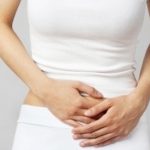Ovulation is a vital part of a woman’s menstrual cycle. It is true that there is actually no safe zone in your entire period cycle and there is always a possibility of getting pregnant whether minimal or high throughout your menstrual cycle. Now comes the confusion whether you can get pregnant if you have intercourse after ovulation. You will have to read on to erase all of your confusions.
Understanding Ovulation
In simple words, ovulation is the process of releasing mature ovum into the fallopian tube from the follicle. Ovulation is believed to take place on the 14th day of a 28 day menstrual cycle. As soon as the ovum is produced, it is present for a mature sperm to fertilize it within 12 to 24 hours.
The time of ovulation in the menstrual cycle can be figured out by the luteal phase which happens to be twelve to sixteen days long. The time of your ovulation can be calculated by subtracting the length of luteal phase from the total length of your cycle. For instance, if your luteal phase is 12 days long and the length of your cycle is 28, then the exact day of your ovulation is the 16th day of your cycle.
However, keep in mind that even if you have regular menstrual cycles, the exact time of your ovulation may keep changing. There are various things that can delay your ovulation like increased physical activity, diet, illness and stress.

Can You Get Pregnant After Ovulation?
Oh yes you can get pregnant after ovulation but your chances of getting pregnant are really less. As soon as the egg is released from the follicle, it remains available for fertilization for 12 to 48 hours. Owing to the cervical mucus, sperm can live up to 5 days in the body of woman. This actually means if sperms are already waiting in the fallopian tube, it will immediately fertilize the egg.
A healthy sperms takes 6 hours to swim from cervix to uterus after ejaculation in order to meet the egg. This means that there are chances of becoming pregnant one to two days after ovulation.
It is imperative to understand your menstruation cycle and ovulation timing to when your chances of getting pregnant are high or low. Here are the chances of pregnancy 5 days before and three days after ovulation (O):
- 5 days before O- 0 Percent
- 4 days before O- 11 percent
- 3 days before O- 15 percent
- 2 days before O- 20 percent
- 1 day before O- 26 percent
- Day of O- 15 percent
- 1 day after O- .09 percent
- 2 days after O- .05 percent
- 3 days after O- 0 percent
Your Fertile Days and Ovulation Timing
Ovulation occurs two before you menstruate. If you have a typical 28 days cycle, then ovulation occurs between 12 and 16 days. The 14th day is believed to be the most fertile as the ovulation usually takes place on this day.
In a regular menstrual cycle, you are going to ovulate 14 days after you period ends. In case your menstrual cycle is irregular or when you ovulate soon after your period ends, you have good chances of becoming pregnant because you are moving into the fertility window.
As each day passes after your period ends, your chances of pregnancy keeps on increasing. If you have unprotected sex very often for the next 14 days, you have very high chances of pregnancy.
The sperms are believed to have a life of three to five days in suitable conditions. You have high chances of getting pregnant if you have unprotected sex during these days whether it is during the day you ovulate or before that. If your period happens to be just for five days, you can be highly fertile on the sixth day of your cycle.
There are some fixed days of fertility in your menstrual cycle and that mainly depends more on when you ovulate compared to when your period ends. The day of ovulation is the time when your fertility is at its maximum and your chances of getting pregnant are highest. Yet another interesting fact is that you have five more fertile days before you ovulate. This means there are a total of six highly fertile days in your entire period cycle. Five days before ovulation and the very day of ovulation are the six highly fertile days in your cycle. After ovulation, the chances of pregnancy are highly minimal.
Calculating the Ovulation Date
The ovulation date primarily depends on the length of your menstrual cycle. You ovulation date can be two weeks after you period, in the middle of your cycle or even within days of your period.
For most women, ovulation occurs between 12 and 16 days before you period begins. If you cycle happens to be of 28 days, then your ovulation day is likely to be the 14th day in your cycle. Similarly, if your cycle lasts for 24 days (less than 28 days), then your ovulation day is the 10th day. And if your cycle is 34 days (more than 28 days) long, then your ovulation day is going to be the 20th day.
In case you have an irregular menstrual cycle, you need to keep track of different signs of ovulation like increased basal body temperature, softened cervix, increased vaginal lubrication and check the cervix height.
Possibility of Two Ovulations in One Cycle
No, it is just NOT possible. However, two eggs can be released at once. How else would the twins be born right? Once you ovulate, your hormone levels drop so that you can ovulate again but in your next menstrual cycle. There is possibility of 2 eggs being released from two different follicles in just one day.
Usually one egg is released by one follicle but because of changes in hormonal levels, a second egg can also be released. When they both get fertilized, that is exactly how twins are born. At times the second egg is absorbed back in the body.










Hi I worried I miss pirod 13 the April and normal on for 5 day cycle but I missed it I when to toliet to day found light pink spotting can I still preg